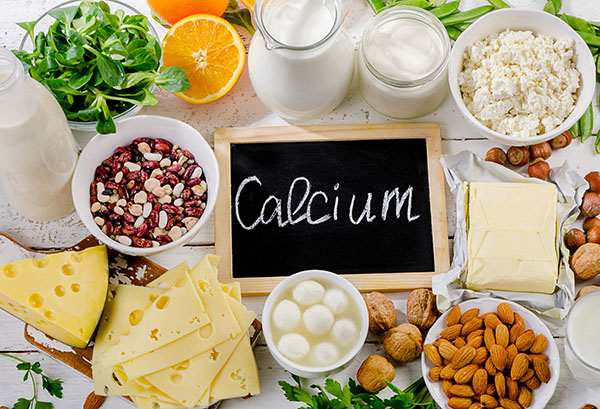January 17th, 2019

Bone health is an important issue for you and your family. You know that you want to avoid bone loss and combat any genetically related illnesses that can affect your bones. If you or anyone in your family suffers from bone related illnesses, it's time to start paying attention to ways you can protect yourself. While consulting your primary care physician or local orthopedic doctors in Atlanta about your options is a great first step, you can also start combatting bone related illnesses by focusing on your diet.
Your eating habits affect your bone density and your bone structure, so paying attention to what you eat can help you keep your bones healthier longer. If you are unsure how your diet affects your bone health, check out these five eating habits that will help you manage healthy bones.
1. Whole Foods
Whole foods provide a lot of healthy properties that can boost your health. That includes your bone health. Additionally, whole foods are packed full of vitamins and minerals that can help you maintain your bone health. These vitamins and minerals include vitamin D and calcium. These are two of the most important elements found in food that can help your bone health.
2. Protein
Protein can affect your bone structure. A high protein diet can help you ensure that your bones are growing properly and maintaining their structure when you’re an adult. This is an excellent way to ensure that your bones stay healthy and have a strong structure to prevent breakage.
3. Calcium
We all know that calcium is a great way to ensure that your bones grow properly, but it can also help you maintain quality bone density when you’re an adult. Your bone density is important because it can help you avoid breaks and fight osteoporosis. If osteoporosis runs in your family, you may be at risk, and working toward maintaining your bone density is important. As an adult, eating foods rich in calcium can help you keep your bones stronger longer.

4. Vitamin D
Vitamin D helps your body absorb calcium better. Having a diet that is rich in calcium but low in vitamin D doesn’t do as much for your bone density as having a diet rich in both. Calcium and vitamin D work hand in hand to help you maintain healthy bones.
5. Stay Away From
While it’s essential to know what you should eat, you should also know what to stay away from to maintain bone health. If you're worried about your bones, make sure you stay away from soft drinks that are high in caffeine and phosphoric acid that can affect your bone density. Additionally, you should do your best to avoid salt, or lower your salt intake, if you're concerned about bone health. This is because salt can affect how much calcium your body expels. Losing calcium can affect your bone density quite a bit.
When it comes to your bone health, you want to make sure that you pay attention to your diet. If you have questions about how you can maintain bone health, you can contact an orthopedic doctor in Atlanta at OrthoAtlanta for a consultation.
Back






